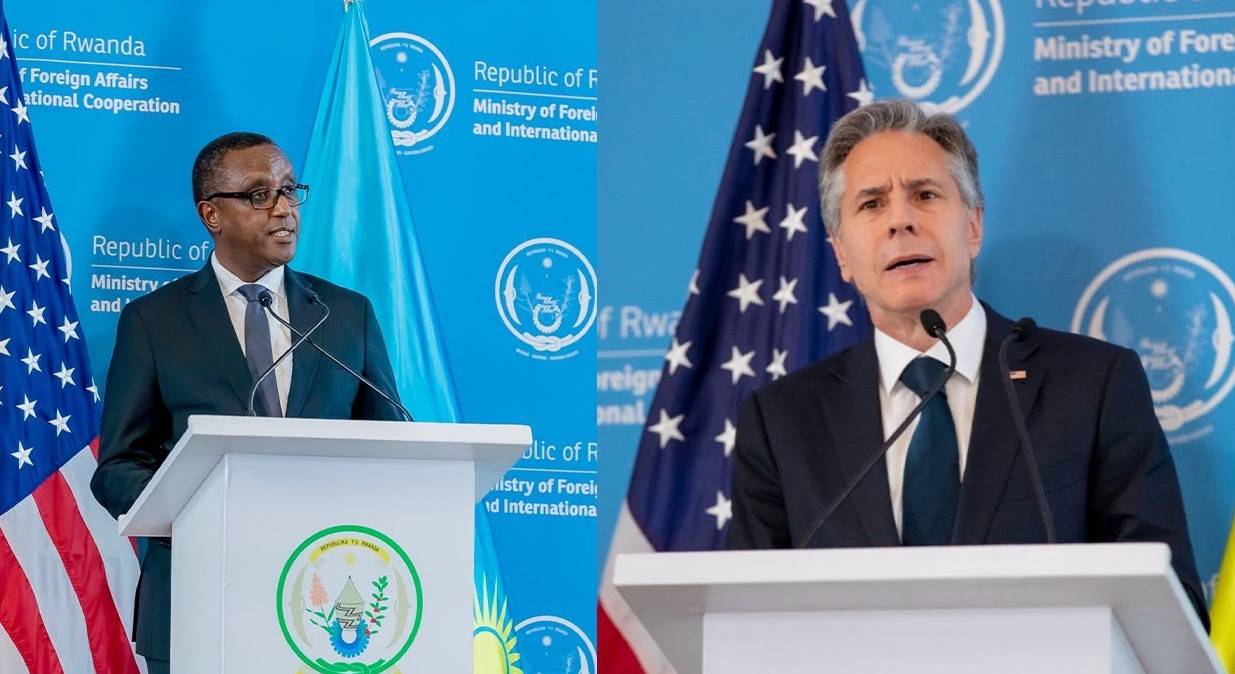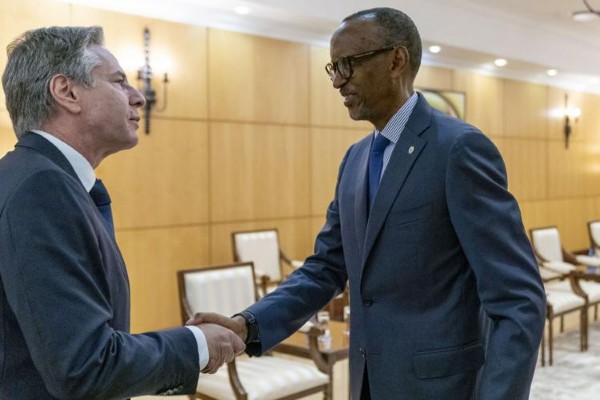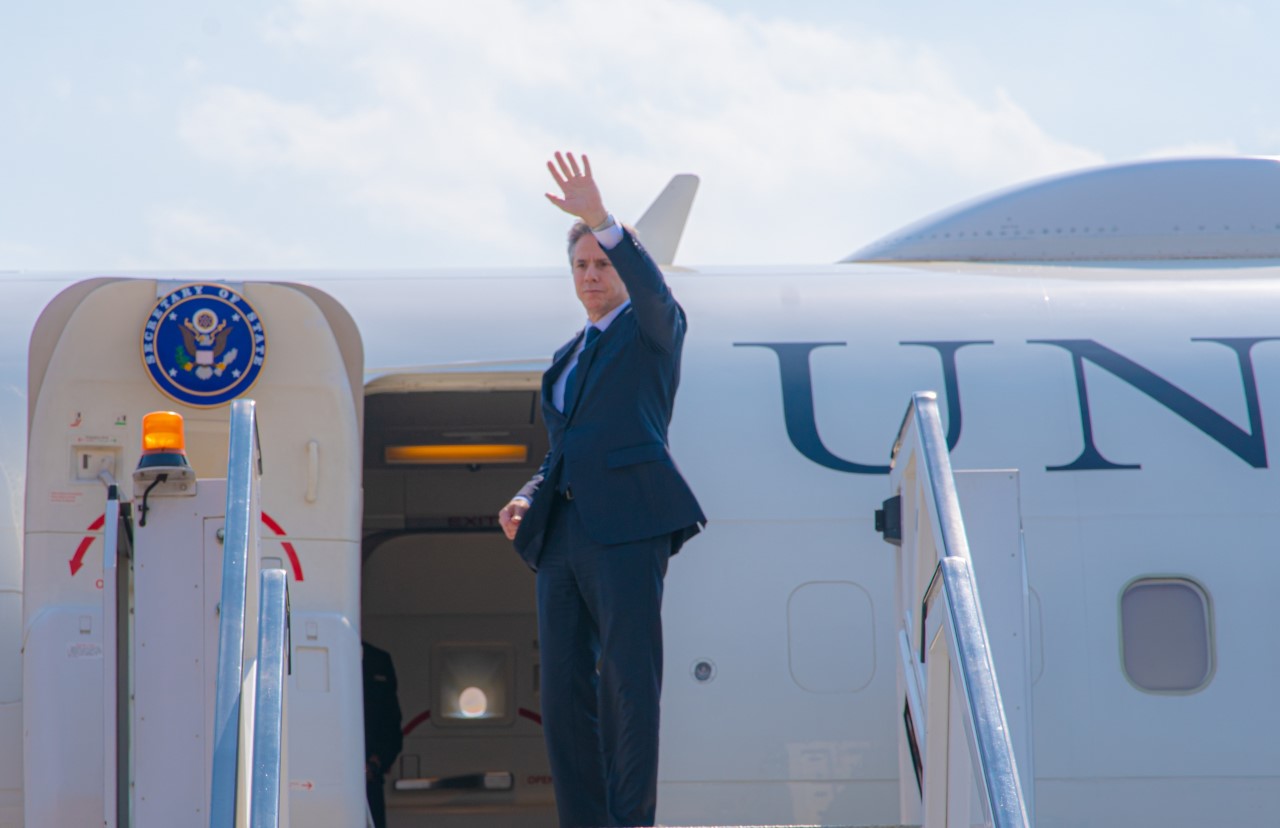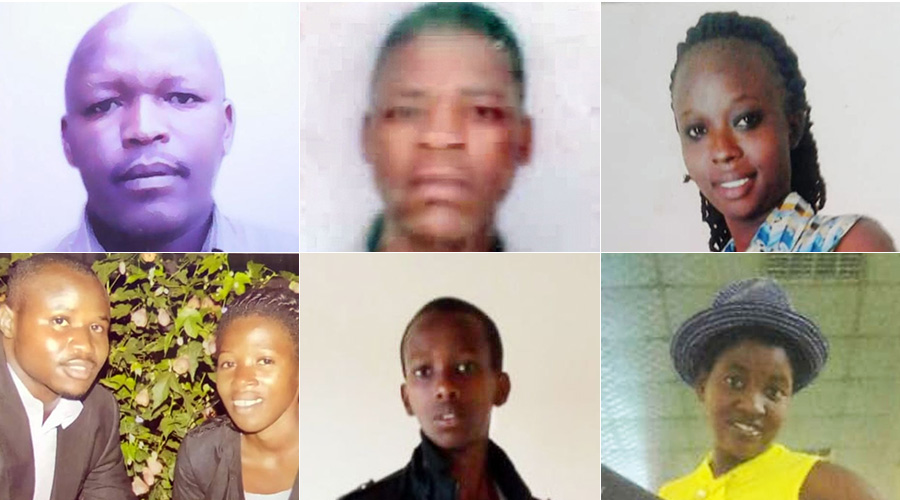Regional
Taming conflicts in the DRC: Prioritise regional efforts
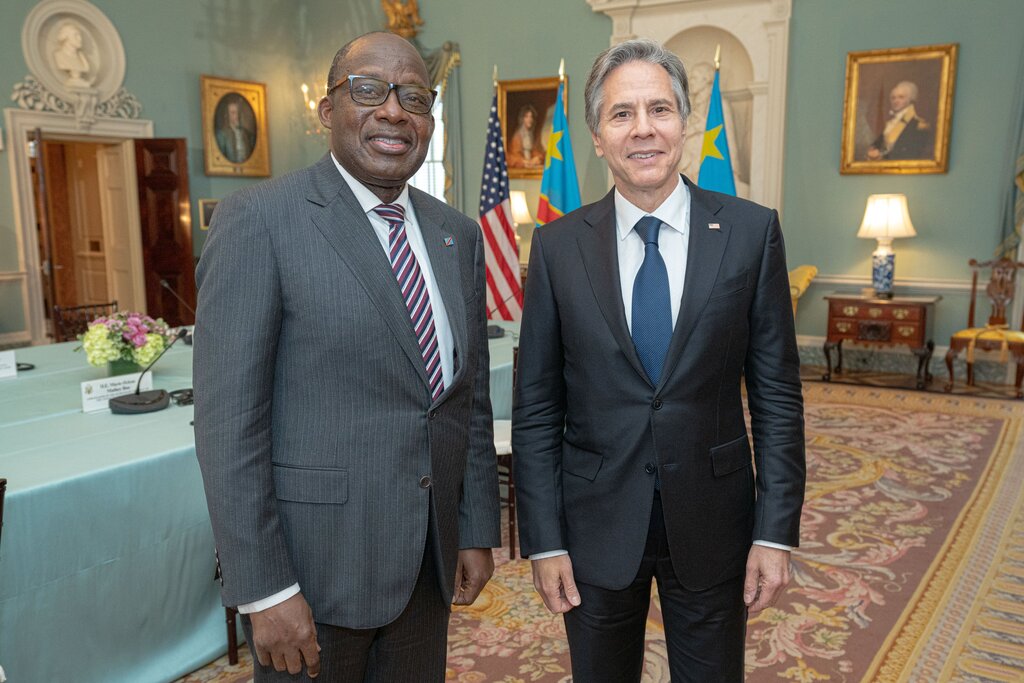
Starting by diagnosing the causes of
conflict rather than immediately imagining a solution based on standard
templates, would provide a firm foundation for arriving at fitting strategies
for ending the perennial upheavals and bloodletting and the misery they cause
and perpetuate
US
Secretary of State Anthony Blinken has been to the Great Lakes region, said
what he came to say, made the demands he wanted to make, gave the lectures he
wanted to give about the sort of behaviour the US expects from our leaders and
governments, emphasised the importance of American values (not ours) and left
for home. In Rwanda and the DRC, he outlined those principles which he
and his government would like to see applied to addressing the challenge of
rebel groups M23 and FDLR and related insecurity in the Kivu region.
The
principles, outlined as if to squabbling youngsters, are that neither the
Government of Rwanda nor that of the DRC should provide support to rebel
groups, and that both groups should disarm. He offered no guidance on how
either should be pursued and achieved. He was not interested in weighing one
rebel group against the other or comparing them. What mattered to him and
presumably his government is that both are armed groups and that both are
causing the suffering of many people. He, therefore, had no interest in
examining the root causes of the crisis. And, of course, for whatever reason,
the other 128 or so rebel groups were of no interest. They did not feature in
his speech.
This
is the second time that M23, founded in April 2012, takes up arms against the
DRC government. Unlike the FDLR with its genocidal intentions and its
terrorising of civilians, especially Tutsi communities in the DRC, for which
the US government has officially designated it as a terrorist group, M23 does
not seek the extermination of any population group in Congo. Also, analysts
agree for the most part that ordinarily it does not count among rebel groups
which are known for committing atrocities against local communities. The first
time it took up arms, much effort was spent by outsiders, among them the
Americans, to ‘find a solution’ to the crisis. Then as now, their ‘solution’
was simple: accusing Rwanda of supporting the insurgents and the Rwandan army
of fighting alongside them, and then lean on Rwanda to cease its alleged
support.
The
US and other Western actors, applauded by the Government of the DRC at the
time, Western NGOs and sections of Western academia, believed that diplomatic
pressure on Rwanda would in the end lead to the collapse of M23 and, de facto,
the end of ‘the problem’. Presumably, they believed that even the grievances
that drove the rebellion then and even before would simply disappear. They did
not. Eventually, however, M23 came under military pressure from a UN
intervention force on the one hand and political pressure from Rwanda and
Uganda on the other, to cease fighting. Among the DRC’s immediate neighbours,
only Rwanda and Uganda have come out openly to urge the DRC government to address
the grievances driving the M23 insurgency.
This
political pressure came with promises that the DRC government would be pressed
to address their grievance. The current crisis proves that neither pressure on
Rwanda, nor the use of force and scattering of M23, nor even the DRC
government’s decision to renege on the promises made to M23, achieved long-term
peace. It would seem, however, that Western governments drew important lessons
from this, and that the lessons explain their more cautious approach this time
round. The assertive posturing of the US has not been loudly embraced or
supported by any other Western power.
Arguably
the biggest mistake they made was when they chose to focus exclusively on M23
while ignoring FDLR, the very generator of the insecurity that forced entire
Tutsi communities out of the DRC into Rwanda as refugees. As long as the FDLR
continued to pursue their genocidal agenda inside Congo and to threaten
Rwanda’s security, as long as MONUSCO continued to turn a blind eye to its
activities while pretending to keep the peace, as long as the Congolese army or
elements of it continued to fraternise with FDLR, it was a matter of time
before war would flare up again.
It
might not be M23 rising up again. It could as well have been another insurgent
group. However, the actors would remain the same: the children of
Kinyarwanda-speaking Congolese who have been driven out of their country
because they are Tutsi or associated with Rwanda and therefore labelled by some
Congolese as ‘Rwandans’. One expects that this lesson too has been learnt, and
that it explains why there have so far been no calls for another Force
Intervention Brigade (FIB) to use force to suppress the rebellion.
Although
at the time it was touted as having routed M23, the FIB had minimal contact
with the insurgents before they dispersed in order to wait out the political
solution they had been promised, or to fight another day. Listening to Anthony
Blinken argue that the insurgents should not be weighed against each other, one
gets the feeling that there is as yet no appetite for getting to the root of
the crisis.
These
details tend to become necessary after fighting escalates and more lives are
lost. The idea that all the insurgents should be treated uniformly or
even-handedly is another exercise in futility. M23 and FDLR are different,
driven by radically different agendas. Approaches to removing them from the
scene must not avoid examining what each one of them is out to achieve, and
whether its ambitions are realistic, feasible, and justified.
One
consequence of foreign actors wading into this crisis with ready-made solutions
or with approaches to conflict resolution that de facto seek to portray the
image of even handedness, is that it opens up space for the DRC government to
make excuses for its own failures and to seek to hold outsiders, Rwanda
especially, responsible for the insecurity and instability in the Kivu region.
This, however, does not provide clarity regarding who is responsible for
insecurity and instability elsewhere, and what should be done about it. Since
M23 rose up again recently, the DRC army, the FARDC, has been most successful
at showing its incompetence, incoherence, internal mismanagement, and abject
lack of discipline. These have combined to render it ineffectual as a fighting
force.
The
cry “it is Rwanda that is attacking us”, readily believed by many local and
foreign commentators, begs the question: what is the DRC army, one of the
largest in Africa, doing to defend the country’s territorial integrity, whether
against foreign or internal insurgents, or supposed aggression by Rwanda. By
listening to the DRC government’s excuses and amplifying them, its sympathisers
and supporters are contributing to condemning the country to eternal conflict
and instability. That some Congolese have taken to anti-Tutsi incitement and,
in some cases, killing and cannibalisation of those whom they have killed, and
that they do this with impunity, only serves to guarantee that war will remain
part of the DRC geographical landscape for years to come.
The
other mistake made has always been to allow MONUSCO to get away not only with
turning a blind eye to the activities of FDLR, but also to the group’s
fraternisation with elements of the FARDC in the Kivus. There are credible
reports that, whenever pressed by the Government of Rwanda on these issues,
MONUSCO has usually invoked the presence of women and children in FDLR camps
for not attacking them, disarming the insurgents, and arresting them. This
dilly-dallying has had only one effect: it has allowed the FDLR to carry on
with its activities which ultimately lie at the root of the recurring tensions
between the DRC, a country which MONUSCO ought to pacify, and Rwanda which
would be served well by that pacification if it happened, for it would remove
the one DRC-based threat to its national security. Continued obsession with M23
by external actors and their focus on pressing Rwanda to help the DRC
government to defeat it distracts attention from the real cause of insecurity
in the Kivu region.
Anthony
Blinken’s visit, therefore, hasn’t moved the region even an inch closer to the
solution. We are yet again able to see that reaching out to foreign,
non-regional actors to provide solutions to protracted conflicts only opens the
way for them to lecture and offer answers – such as peace-keeping missions and
mediation – that are costly in financial terms, take ultimate responsibility
out of the hands of the affected governments, lack context and worsen the
situation.
There
is only one way of sorting out the situation: get the countries that generate
insurgents, that therefore have a major stake in the DRC’s stability and
internal security, to sit down together and come up with a collective approach.
Additionally, outsiders farther afield, such as the US and its usual allies,
should refrain from getting involved in the search for a solution until they
have been asked for help by the protagonists. A smart way to proceed would be
to prioritise efforts to diagnose the immediate and underlying causes of
conflicts that involve the major rebel groups before venturing to prescribe a
cure.
This
direct engagement with, rather than avoidance of, the drivers of conflict,
offers great opportunities. First, it promises to highlight the pivotal role of
Ugandan, Burundian and Rwandan insurgents, the DRC’s predatory military, and
long-festering grievances in the DRC especially, in provoking local communities
into taking up arms to fill the vacuum left by the at best dysfunctional, at
worst absent, government. These are important issues the Tshisekedi government,
and those who seek to beef up its military capacity or to neutralise M23 as a
priority, conveniently disregard.
Starting
by diagnosing the causes of conflict rather than immediately imagining a
solution based on standard templates, would provide a firm foundation for
arriving at fitting strategies for ending the perennial upheavals and
bloodletting and the misery – hunger, poverty, ignorance, ill-health – they
cause and perpetuate. If prioritised, it will, in the end, give real meaning to
the usually rather hollow and easy-to-deploy slogan “African solutions to
Africa’s problems”.
Source:
www.panafricanreview.rw


